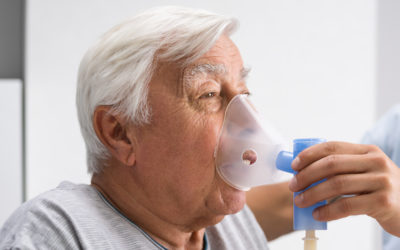Pulmonary Function Test (PFTs)
About PFTs
Pulmonary function tests are a group of tests that assess your ability to breathe and how capable your lungs are in delivering oxygen to the rest of your body.
These tests are recommended for a variety of reasons, including:
- Part of a routine physical, especially if you smoke or have a history of smoking
- Part of a work physical, if you’re regularly exposed to certain substances
- To help diagnose lung conditions, such as asthma, chronic bronchitis or chronic obstructive pulmonary disease (COPD)
- To assess difficulty breathing from a respiratory infection or chest injury
- To determine if an existing lung disease is progressing or responding to treatment
- To check if you are having side effects from certain medicines that can affect breathing
- To test your lung function before surgery
Types of Tests
Depending on your specific needs, your pulmonologist may perform one or a combination of pulmonary function tests, each using a specially fitted mouthpiece.
- Spirometry: Measures the amount of air you breathe in and out, and how fast. You’ll sit in front of a machine to do a number of breathing exercises. You may be asked to breathe in a medicine that helps relax the muscles around the airway, making it easier to exhale.
- Plethysmography test: Measures the amount of air you can hold in your lungs. You’ll sit or stand in a small booth for your breathing tests.
- Diffusion capacity test: Measures how well the oxygen in your lungs can move to the bloodstream. You’ll be asked to breathe in certain gases such as oxygen, helium or carbon dioxide.
Recovery and Follow-Up Care
All PFTs are generally quick and safe for most people. Before your test, your medical provider will provide special instructions and discuss any concerns. Your comfort is our priority – you will be closely monitored by respiratory technologists during and after for dizziness, shortness of breath or any other problems.
If you have a history of lung disease or breathing difficulty, you may be tired after the tests. You’ll have the chance to rest afterwards until you’re comfortable enough to go home. Your doctor will also talk with you about your results and next steps for treatment, if needed.
Schedule an Appointment
Call 618-282-7373
Related Services and Conditions
Asthma
Asthma is a long-term condition that affects your breathing. It causes the airways that lead to the lungs to swell. People with asthma may have asthma attacks. During an asthma attack, the airways tighten and become narrower. This makes it hard to breathe, and you may...
COPD
Breathe Easier with Personalized Treatments Every person’s COPD – including chronic bronchitis, emphysema or both – is different. Treatment options may include one or a combination of: Lifestyle Changes Simple adjustments, including eating right and exercising...


